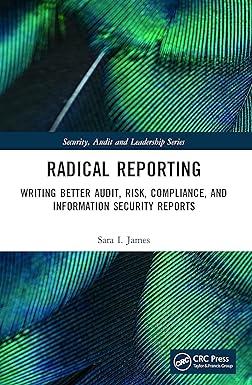Question
Henley is in business in Seattle as a distributor/dealer in rocketry and electronics. In addition, the company frequently served as a purchasing agent for the
Henley is in business in Seattle as a distributor/dealer in rocketry and electronics. In addition, the company frequently served as a purchasing agent for the acquisition of similar goods.
In December of 2020, Pace, a retailer for whom Henley had occasionally acted in the past, wrote Henley authorizing him to purchase on Paces behalf a specified quantity of telemetric equipment from Spitz, a wholesaler. Pace added that because of certain transactions in the past, Spitz might refuse to deal with him and directed Henley not to disclose the buyers identity. There had previous allegations of failure to disclose pertinent information.
Henley, who occasionally dealt with Spitz on his own account, was indebted to Spitz for $350,000 for various items purchased on credit and purchase orders earlier that year under contracts that seemed reasonable and provident when made. Henley immediately contacted Spitz and arranged with them for the purchase of the order amounting to approximately 640,000. Henley was made acutely aware that there was tension between Pace and Spitz arising from the lack of candor.
A written contract was entered into and delivery was to be made February 1 or 2 at Henleys place of business, Payment was to be made 10 days thereafter. Henley signed the contract in his own name, having made no mention of Pace, and Spitz assumed that Henley was the buyer. On Feb 1, Spitz failed to deliver under the contract, notifying Henley that he had learned for whom Henley was acting and that he would not fill the order.
Informed of this, Pace promptly purchased similar products in the open market. Pace alleges damages of $175,000 with respect to the transaction as the best price that could be negotiated was 175K more on the open market as compared to the contract price. Pace demanded that Spitz pay the $175K damages. Spitz repeated his refusal to be bound by the contract, pointing out that had Spitz known the identity of Henleys principal, he would not have entered into the contract. Spitz also claimed that even if he were liable, he would be entitled to set off the $175,000 by the amount owed him by Henley.
What are the rights and responsibilities of the various parties to each other? Was there a contract? Was there a failure to disclose? Who can serve as an agent? Was there sufficient contractual authority? What was the type of authority? Was is actual or apparent? Please explain these issues as well as all of the issues in the scenario.
All of them are arguing that there are two duties that each agent has to a principal, that is the duty of care and the duty of loyalty. What are those duties and in the above scenario who had which duties to whom?
Step by Step Solution
There are 3 Steps involved in it
Step: 1

Get Instant Access to Expert-Tailored Solutions
See step-by-step solutions with expert insights and AI powered tools for academic success
Step: 2

Step: 3

Ace Your Homework with AI
Get the answers you need in no time with our AI-driven, step-by-step assistance
Get Started


